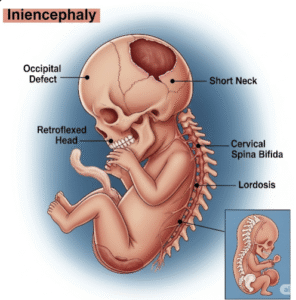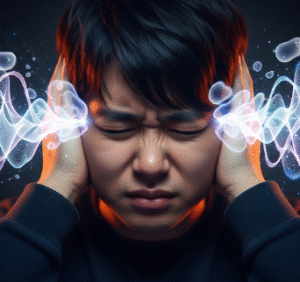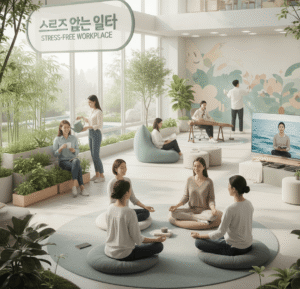Overview
Anhedonia is a psychological condition characterized by a loss of interest or pleasure in activities that were previously enjoyable. It is commonly associated with depression, schizophrenia, bipolar disorder, and chronic stress, but can also appear in neurological conditions such as Parkinson’s disease.
Individuals with anhedonia may struggle to experience joy, motivation, or emotional satisfaction, which can severely impact daily functioning, social relationships, and overall quality of life. In South Korea, mental health clinics, psychiatric hospitals, and specialized therapy centers provide comprehensive care, including diagnostic evaluation, psychotherapy, medication management, and support programs to help patients regain engagement and emotional well-being.
Key Facts
Highlights:
➡️ Anhedonia is a core symptom of major depressive disorder and is often observed in other psychiatric conditions.
➡️ It involves a reduced ability to experience pleasure or interest in social, recreational, or professional activities.
➡️ Anhedonia can be emotional (loss of emotional response) or motivational (loss of drive or desire to engage).
➡️ Early recognition and treatment are essential to prevent social withdrawal, functional decline, and worsening mental health.
➡️ South Korean mental health facilities offer multidisciplinary treatment approaches including psychotherapy, medications, and lifestyle interventions.
What is Anhedonia?
Anhedonia is a symptom rather than a standalone disorder, marked by diminished capacity to feel pleasure. It affects emotional, social, and physical experiences:
- Emotional Anhedonia: Inability to feel joy or positive emotions.
- Social Anhedonia: Lack of interest in social interactions or relationships.
- Physical Anhedonia: Reduced pleasure in physical activities such as eating, exercising, or sexual activity.
It is often measured using psychological assessments and clinical interviews, as patients may not always verbalize their experience of emotional numbness or loss of interest.
What Symptoms are Related to Anhedonia?
Symptoms commonly associated with anhedonia include:
- Loss of interest in hobbies, social interactions, or work-related activities
- Emotional numbness or flat affect
- Reduced motivation to initiate or sustain tasks
- Withdrawal from friends, family, or community activities
- Decreased response to positive stimuli such as praise, rewards, or enjoyable events
- Changes in appetite, sleep patterns, or energy levels
- Feelings of emptiness, hopelessness, or dissatisfaction with life
What Causes / Possible Causes of Anhedonia?
Highlights:
➡️ Major Depressive Disorder: Anhedonia is a key diagnostic symptom of depression.
➡️ Schizophrenia and Other Psychiatric Disorders: Negative symptoms often include loss of pleasure and social withdrawal.
➡️ Chronic Stress: Prolonged exposure to stress hormones can impair reward pathways in the brain.
➡️ Neurological Disorders: Parkinson’s disease, Alzheimer’s disease, and other neurodegenerative conditions can affect pleasure centers.
➡️ Substance Use: Chronic alcohol or drug use can diminish the brain’s reward response.
➡️ Inflammatory and Hormonal Factors: Certain medical conditions and imbalances may contribute to anhedonia.
➡️ Genetic and Environmental Factors: Family history of depression or exposure to early-life trauma can increase risk.
When Should I See My Doctor?
Highlights:
➡️ If you experience persistent loss of interest or pleasure in daily activities.
➡️ If anhedonia is accompanied by depressive symptoms such as sadness, hopelessness, or fatigue.
➡️ If social withdrawal, neglect of responsibilities, or reduced motivation interferes with daily life.
➡️ If there is a history of psychiatric conditions or neurological disorders.
➡️ For early intervention to prevent functional decline, emotional deterioration, and worsening mental health.
➡️ If self-care, relationships, or work performance are affected.
Care and Treatment
Management of anhedonia focuses on treating the underlying condition, restoring emotional engagement, and improving quality of life.
Highlights:
➡️ Psychiatric Evaluation: Comprehensive assessment to determine the underlying mental health condition.
➡️ Medications: Antidepressants (SSRIs, SNRIs), atypical antipsychotics, or adjunctive medications targeting reward pathways.
➡️ Psychotherapy: Cognitive-behavioral therapy (CBT), behavioral activation therapy, and interpersonal therapy to increase engagement and pleasure.
➡️ Lifestyle Interventions: Regular physical activity, structured routines, mindfulness, and enjoyable social activities.
➡️ Neuromodulation Therapies: In severe or treatment-resistant cases, transcranial magnetic stimulation (TMS) or electroconvulsive therapy (ECT) may be considered.
➡️ Support Systems: Family education, peer support groups, and community involvement to enhance social connectivity.
➡️ Monitoring: Regular follow-up to assess symptom improvement, medication response, and functional recovery.
Treatment Options in Korea
South Korea provides advanced mental health care for anhedonia through psychiatric and therapy centers.
Highlights:
➡️ Comprehensive Psychiatric Assessment: Diagnosis of underlying psychiatric or neurological conditions.
➡️ Multidisciplinary Care: Collaboration among psychiatrists, psychologists, occupational therapists, and social workers.
➡️ Pharmacological Management: Personalized medication plans to enhance mood, motivation, and reward processing.
➡️ Therapeutic Interventions: CBT, behavioral activation, and mindfulness programs tailored for anhedonia.
➡️ Neuromodulation Therapy: TMS and ECT available in specialized centers for treatment-resistant cases.
➡️ Integrated Social Support: Family involvement, counseling, and structured social activities.
➡️ Medical Tourism Support: Multilingual services, treatment planning, and follow-up care for international patients.













